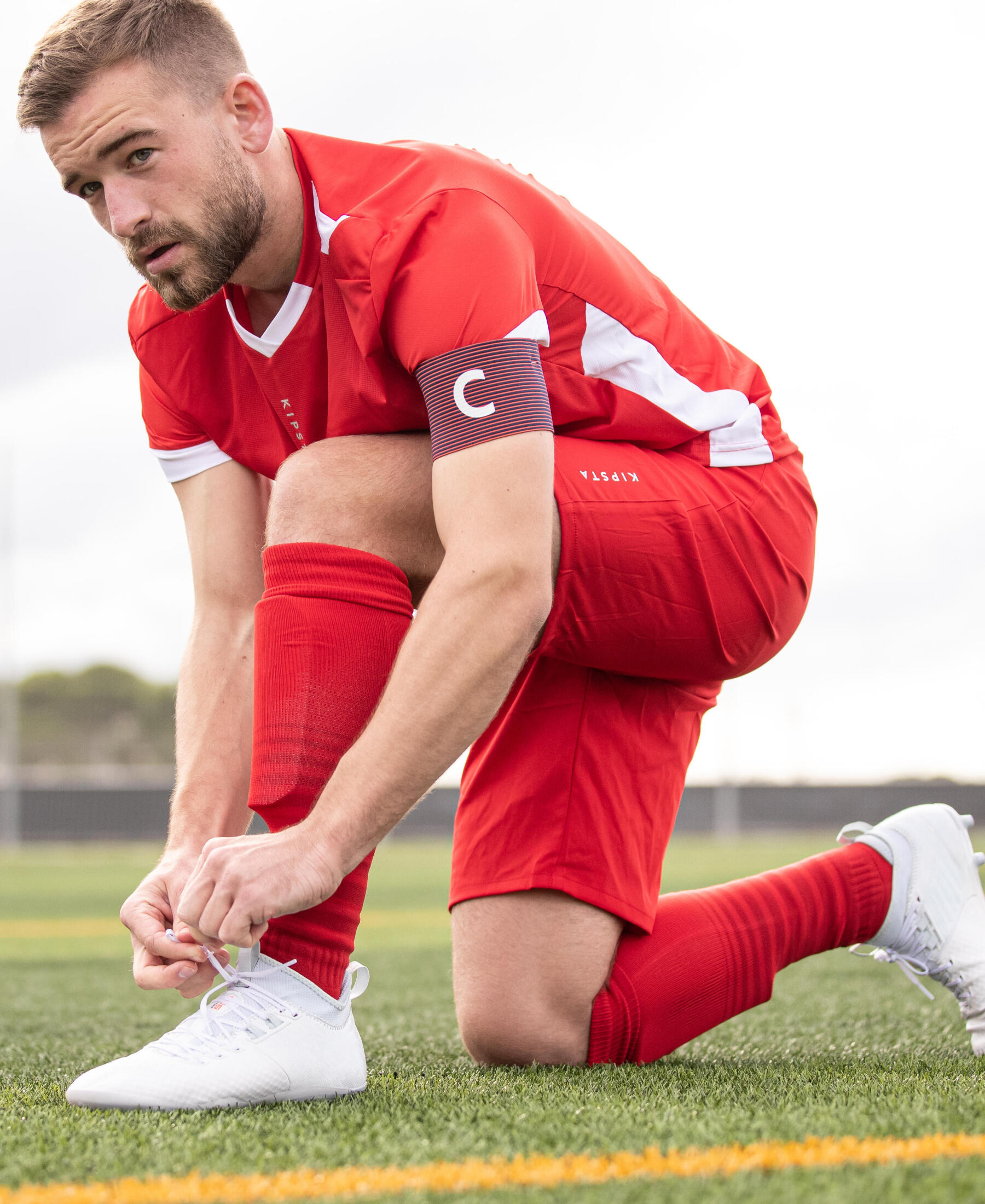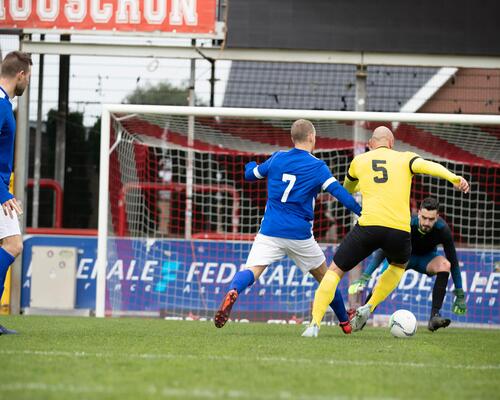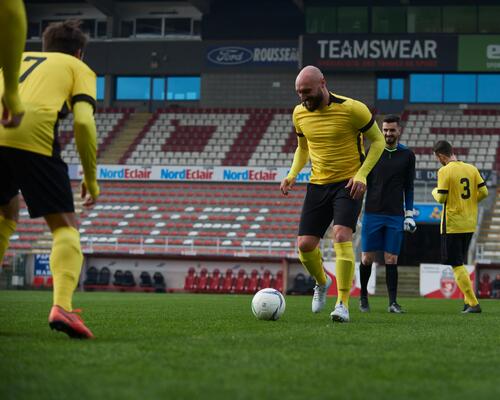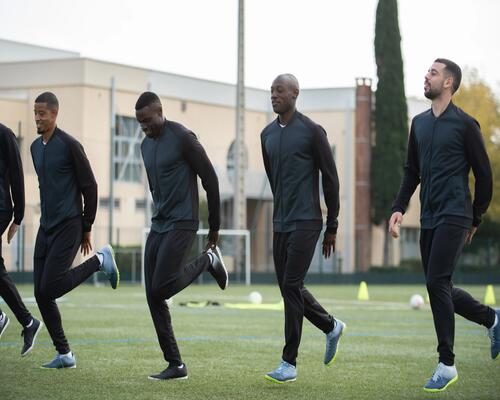Boots suitable for the type of pitch you're playing on
First and foremost, it is very important to play in boots suitable for the type of pitch you are learning on.
Several different types of soles are available. HG, for short synthetic fields. FG, which you may know as moulded, for natural dry or long synthetic grass. SG, or conical studs, for wet grass fields.
Ideally, every football player should have a pair of each. The player's advantage is to have a good grip, no matter the type of field, so they can concentrate on their performance. Additionally, all competitors will be interested to know that this reduces the risk of injury. I've lost count of the number of footballers I've seen injure their adductors or ankles because their boots didn't provide enough comfort and safety for the pitch we were playing on.
To sum up, having several pairs of football boots equipped with HG, FG, and SG soles will be a true advantage. And for those players who do not want to change their model based on the pitch, it is possible. The AGILITY 900 MID from Kipsta is available in HG, FG, and SG.









